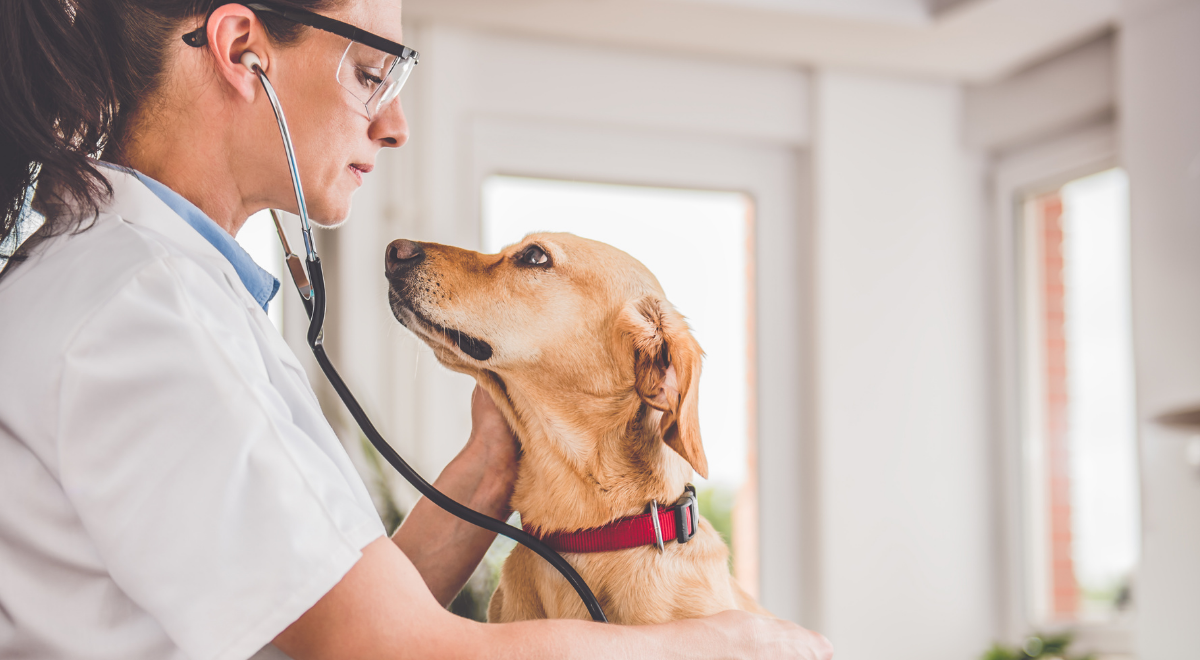What are the most common cancers in dogs? Did you know dogs get cancer similar to people? Cancer can be devastating. Read below to learn more about cancer in dogs and what you can do.
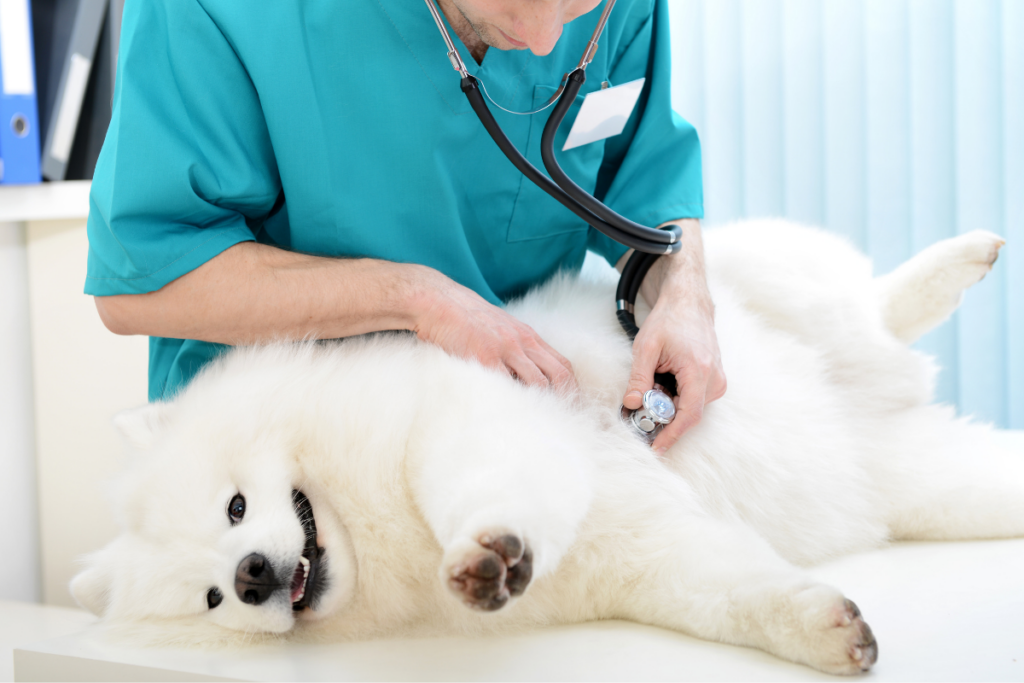
The largest veterinary study with over 3,000 dogs reported the five most commonly diagnosed pet cancers.
Lymphoma
Lymphoma is a cancer of the lymph nodes or glands in dogs. This cancer also occurs in people and cats. Lymphoma has many different forms which lead to different treatment options and prognosis. Learn more about lymphoma by reading our blog on lymphoma in dogs.
Treatment for canine lymphoma can get complicated quickly with many options. It is important to see a veterinary oncologist to learn what is best for your pet. You can talk with one of our experienced oncologists or find one in your area.
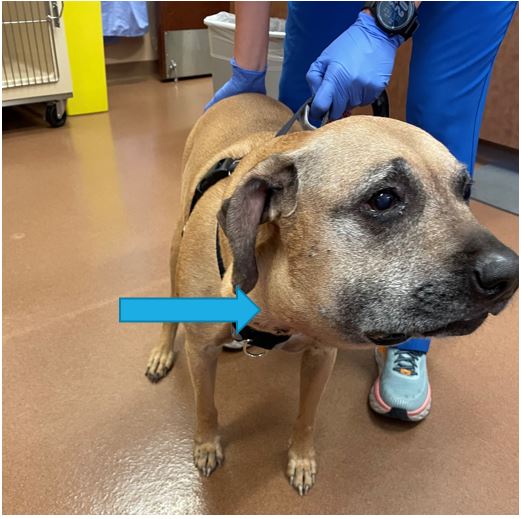
Osteosarcoma
Osteosarcoma is a cancer of the bone. This develops more in large breed dogs. This is more common in the shoulder and knee. It can occur in any breed or bone, so it is important to have x-rays done if your dog is limping and does not improve with regular treatments. Osteosarcoma can be an aggressive pet cancer with many different treatment options available. Read our blog on bone tumors to learn more.
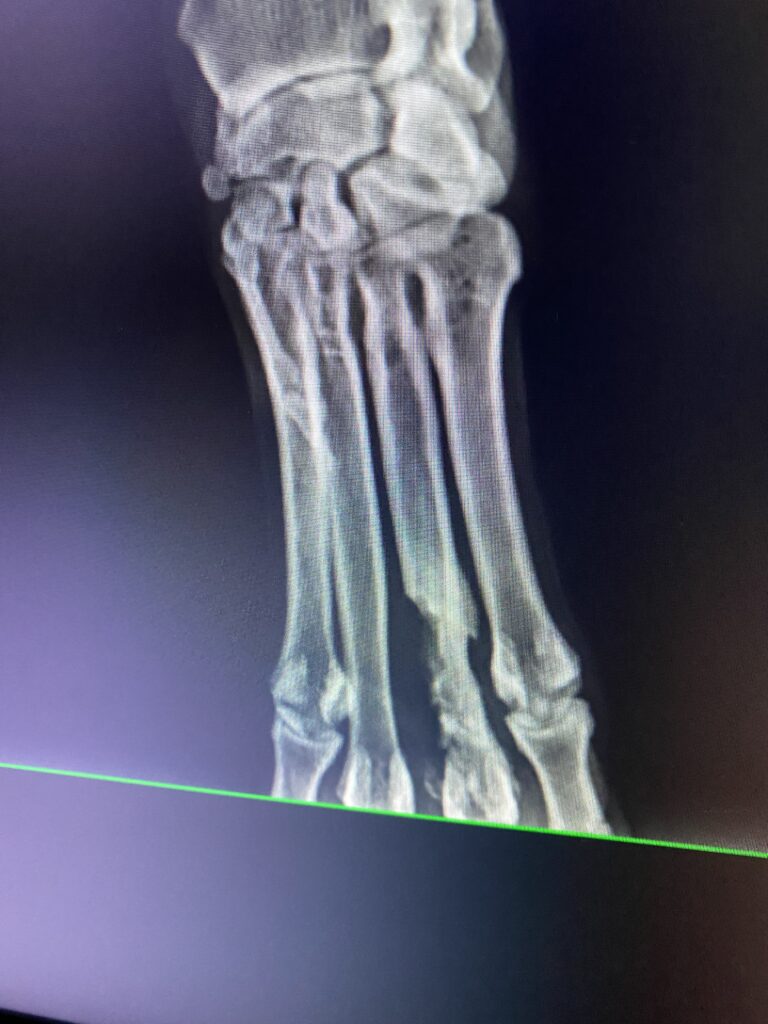
Mast Cell Tumors
Mast cell tumors are a strange cancer which is common in dogs but rare in people. These can occur as solitary, round, raised lumps on your dog or cat. Mast cell tumors have a wide range of behaviors. Importantly some are mostly benign while others are malignant which spread quickly.
Surgery is often needed with these tumors and then further treatment with radiation and/or chemotherapy are needed for more aggressive mast cell tumors. New therapies with pills called targeted therapies are available for mast cell tumors. These pills can work very well in some dogs. Injectable therapies are also available for dogs whose tumors cannot be taken off with surgery. Stelfonta is a new treatment your veterinarian may discuss with you
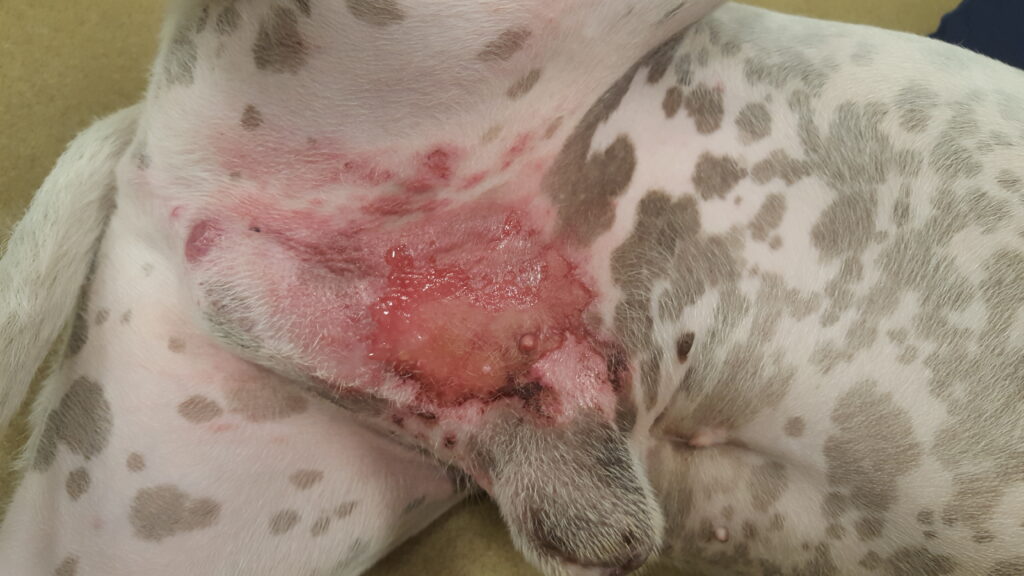
Hemangiosarcoma
Hemangiosarcoma is a cancer of blood vessels. This can occur almost anywhere in the body but the most common location is the spleen. Hemangiosarcoma can behave very aggressively when it occurs in the spleen, liver, and/or heart. Cutaneous hemangiosarcoma is cause from too much sun exposure. These tumors have a more benign behavior and do well with surgery alone.
Other forms of hemangiosarcoma need surgery and often other therapy like chemotherapy. Targeted therapies are being evaluated for hemangiosarcoma. These are pills which can be given at home. Targeted therapies are designed to be a more precise treatment based on the tumor mutations. Companies such as Fidocure and Vidium are evaluating dog tumors for genetic mutations to help guide therapy options and prognosis. Sadly, hemangiosarcoma can carry a poor prognosis so often new diagnostic tests and therapies are recommended with the goal of providing more time with our dogs.
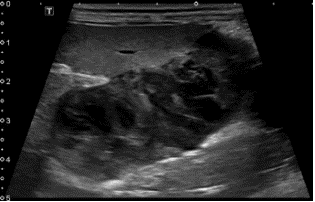
Mass on the spleen of a dog seen on ultrasound
Soft Tissue Sarcoma
Soft tissue sarcoma are a wide variety of tumors. This cancer can grow and form a tumor anywhere on the dog. The trunk and limbs are the most common locations. These tumors can grow and become a real problem for dogs. Metastasis or spread to other parts of the body is not as common as large growth.
Soft tissue sarcomas can become big enough to cause pain and even non-healing wounds. It is important to have any lump checked out on your dog which has been present for over a month, growing rapidly, and/or firmly attached.
Soft tissue sarcomas are most often treated with surgery. Advanced treatments are needed for dogs whose tumors cannot be completely surgically removed and when the tumor appears more aggressive.

What Do You Do If You Think Your Dog has Cancer?
Talk to a veterinarian if you dog has a lump present for over a month, rapid growth in the tumor, swellings around the neck, decreased appetite and energy, changes in toilet habits, and unexplained changes in behavior. This is not an exhaustive list for signs of cancer and not all of these signs mean your dog has cancer. But the sooner you know your dog has cancer, the faster you can intervene with therapy to hopefully provide the longest survival and best prognosis.
Our oncologists at Pet Cancer Care Consulting can work with your family veterinarian to explain your pet’s cancer, testing, treatment, and prognosis. Oncologists have extra training beyond veterinary school to learn more about cancer in animals and how best to treatment them. Message us today to schedule the consultation with your veterinarian if your pet has cancer so you can learn all the options before it is too late.

